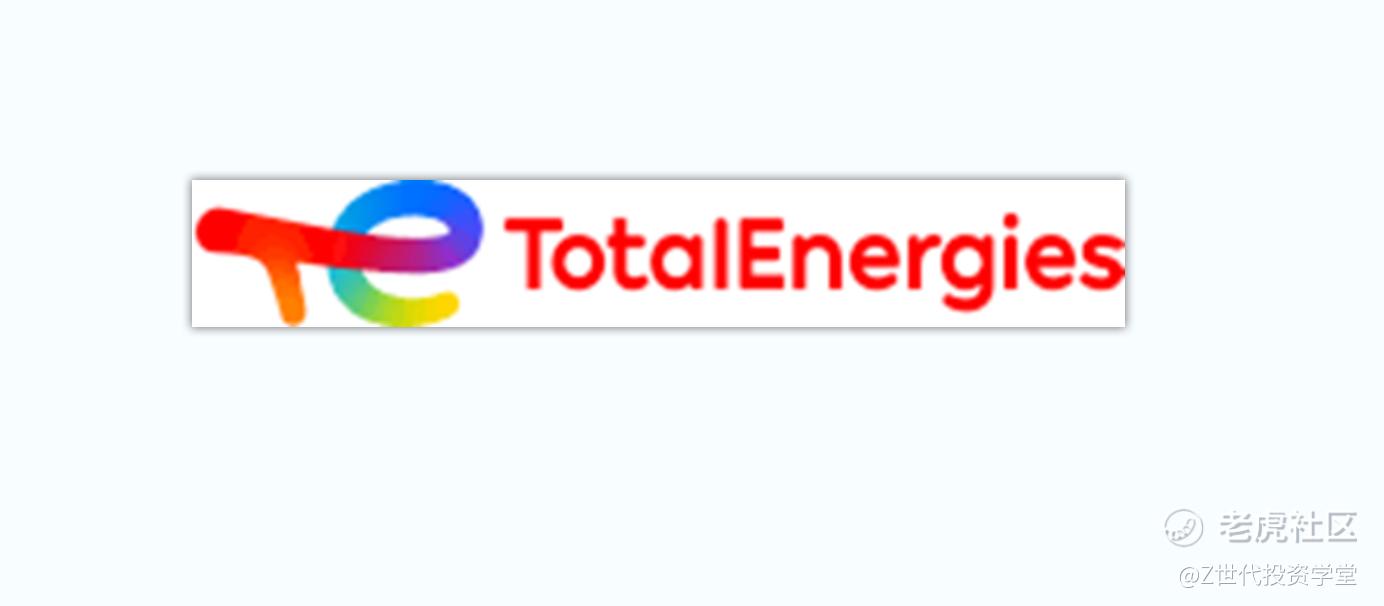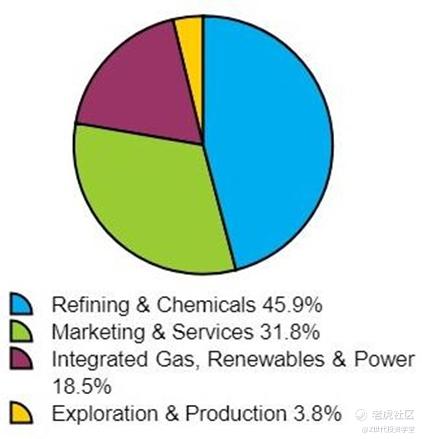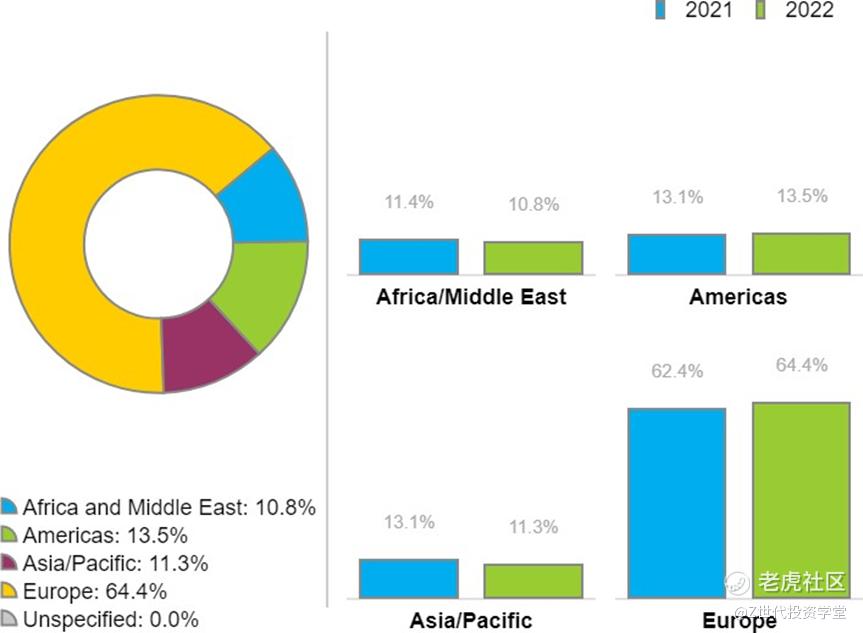Initial Report(part1): TotalEnergies (TTE) , 38% 5-yr Potential Upside (VIP SEA, Claire CONTRI )
Executive Summary
The following investment memo outlines an opportunity in TotalEnergies, a leading company focusing on energy, renewables, oil, and gas. This executive summary aims to give an overview of the investment opportunity and present the key factors that make it compelling.
In 2022, the global energy and renewables market was valued at USD 2.018 Billion in 2022. It is estimated to reach USD 4.286 Billion by 2031, growing at a CAGR of 8.73% from 2023 to 2031. On the other hand, the oil and gas market was valued at USD 6.989 Billion in 2022. It is expected to grow to USD 8.670 Billion in 2027 at a CAGR of 4.3% from 2023 to 2027. Hence, both sectors are experiencing rapid expansion, driven by the proliferation of emerging clean technologies and increasing concerns over environmental depletion due to energy and oil production.
Within the energy, renewables, oil, and gas market, TotalEnergies is a leading integrated global multi-energy company providing services from oil drilling to manufacturing. The company mainly focuses on drilling, transporting, refining, and manufacturing petroleum products, specialty chemicals, and renewable gases. The company generates revenue mainly from its large customer base and diversified technology and products. Furthermore, its utmost commitment to sustainability in terms of its environmental, social, and governance aspects enables the company to progress further, as evidenced by its high ESG rankings. With such a robust core business model and vision, TotalEnergies has established a solid foundation for future growth and success.
TotalEnergies has a market capitalization of $145.57 billion, a net debt to EBITDA ratio of 0.30, and relative PE and TEV/EBIT ratios of 7.67x and 3.43x, respectively. This financial performance indicates the company’s potential for sustainable growth and value creation.
TotalEnergies’ unique value proposition lies in its ability to capitalize on emerging clean technologies, consider growth-focused acquisitions, and streamline its core operations. This investment presents an opportunity to support a company's growth with strong market potential.
While this investment opportunity is promising, it is essential to acknowledge the associated risks. These may include environmental, political, and operational risks. It is essential to carefully evaluate these risks and consider mitigating strategies to protect the investment.
In conclusion, it is recommended that we proceed with the investment in TotalEnergies. The investment offers substantial growth potential in a thriving market, supported by strong financial projections. Furthermore, the company’s commitment to ESG principles aligns with the investor's values and reduces potential risks.
Company Overview
TotalEnergies SE (TotalEnergies), formerly Total SE, is an integrated global multi-energy company part of the of the seven supermajor oil companies with ExxonMobil, ConocoPhilipps, BP, Shell, Chevron, and Eni. The company carries out drilling, oil and gas production, processing, transportation, refining and petrochemical production, storage, and distribution of petroleum products and specialty chemicals. It also trades power generation and gas and operates in the renewable energy sector. TotalEnergies supplies feedstock to chemical plants, charters ships, and trades on various derivative markets. The company serves consumers in the transportation, automotive, aerospace, energy, housing and manufacturing industries. It operates in Asia-Pacific, Africa, Europe, the Middle East, and North and South America. The company is a component of the Euro Stoxx 50 stock market index. In the 2023 Forbes Global 2000, TotalEnergies was ranked as the 21st largest public company in the world. Created in 1924, TotalEnergies is headquartered in Courbevoie, Ile de France, France.
2.1 Company History
2.1.1 1924–1985: Compagnie française des pétroles
The company was founded after World War I when petrol was seen as vital in case of a new war with Germany. The then-French President Raymond Poincaré rejected the idea of forming a partnership with Royal Dutch Shell in favor of creating an entirely French oil company. At Poincaré's behest, Col. Ernest Mercier, with the support of 90 banks and companies, founded Total in 1924 as the Compagnie française des pétroles (CFP), in English, the “French Petroleum Company”.
As per the agreement reached during the San Remo conference of 1920, the French state received the 25% share held by Deutsche Bank in the Turkish Petroleum Company (TPC) as compensation for war damages caused by Germany during World War I. The French government's stake in TPC was transferred to CFP, and the Red Line agreement in 1928 rearranged the shareholding of CFP in TPC (later renamed the Iraq Petroleum Company in 1929) to 23.75%. The company from the start was regarded as a private sector company given its listing on the Paris Stock Exchange in 1929.
During the 1930s, the company was engaged in exploration and production, primarily from the Middle East. Its first refinery began operating in Normandy in 1933. After World War II, CFP engaged in oil exploration in Venezuela, Canada, and Africa while pursuing energy sources within France. Exploration in Algeria, then a French colony, began in 1946, with Algeria becoming a leading source of oil in the 1950s.
In 1954, CFP introduced its downstream product – Total brand of gasoline in Africa and Europe.
Total entered the United States in 1971 by acquiring Leonard Petroleum of Alma, Michigan, and several Standard Oil of Indiana stations in Metro Detroit.
In 1980, Total Petroleum (North America) Ltd., a company controlled 50% by CFP, bought the American refining and marketing assets of Vickers Petroleum as part of a sell-off of its energy holdings by Esmark. This purchase gave Total refining capacity, transportation, and a network of 350 service stations in 20 states.
2.1.2 1985–2003: Total CFP and rebranding to Total
Total's leadership had been aware of the harmful effects of global warming since at least 1971. Nevertheless, the company openly denied the findings of climate science until the 1990s. Total also pursued a number of strategies to cover up the threat and contribute to the climate crisis.
The company renamed itself Total CFP in 1985 to build on the popularity of its gasoline brand. Later, in 1991, the name was changed to Total when it became a public company listed on the New York Stock Exchange. In 1991, the French government held more than 30 percent of the company's stock, but by 1996, it had reduced its stake to less than 1 percent. Between 1990 and 1994, foreign ownership of the firm increased from 23 percent to 44 percent.
Meanwhile, Total continued to expand its retail presence in North America under several brand names. In 1989, Denver, Colorado–based Total Petroleum, Total CFP's North American unit, purchased 125 Road Runner retail locations from Texarkana, Texas–based Truman Arnold Companies. By 1993, Total Petroleum operated 2,600 retail stores under the Vickers, Apco, Road Runner, and Total brands. That year, the company began remodeling and rebranding all of its North American gasoline and convenience stores to use the Total name. Four years later, Total sold its North American refining and retail operations to Ultramar Diamond Shamrock for $400 million in stock and $414 million in assumed debt.
After Total's takeover of Petrofina of Belgium in 1999, it became known as Total Fina. Afterwards, it also acquired Elf Aquitaine. First named TotalFinaElf after the merger in 2000, its name reverted to Total in 2003. During that rebranding, the globe logo was unveiled.
2.1.3 2021–present: Rebranding to TotalEnergies
In 2021, the company announced a name change to TotalEnergies as an intended illustration of its investments in the production of green electricity. At the Ordinary and Extraordinary Shareholders’ Meeting in May of that year, shareholders approved the name change to TotalEnergies.
Business Segments
TotalEnergies SE explores and produces fuels, natural gas, and low-carbon electricity. It operates through the following business segments: Exploration and Production; Integrated Gas, Renewables, and Power; Refining and Chemicals; and Marketing and Services.
The Integrated Gas, Renewables, and Power segment comprises integrated gas, including Natural gas and liquefied natural gas (LNG), and low carbon electricity businesses, including upstream and midstream LNG activity.
The Exploration and Production segment encompasses oil and natural gas exploration and production activities. Starting September 2021, it notably includes the carbon sink activity (carbon storage and nature-based solutions) previously reported in the Integrated Gas, Renewables, and Power segment.
The Refining and Chemicals segment constitutes a central industrial hub comprising the activities of refining, petrochemicals, and specialty chemicals. This segment also includes the activities of oil supply, trading, and marine shipping.
The Marketing and Services segment includes the global supply and marketing of petroleum products. In addition, the corporate segment includes holdings, operating, and financial activities.
Figure 1
As we can see on the left graph, the Refining and Chemicals segment makes the most out of TotalEnergies' total revenues (45.9%). It is followed closely by the Marketing and Services segment (31.8%), the Integrated Gas, Renewables, and Power segment (18.5%), and finally, the Exploration and Production segment (3.8%).
Figure 2
Moreover, regarding geographic distribution, we can also see that TotalEnergies’ revenues are mostly drawn from Europe (60.7%), the Americas (13.5%), the Asia-Pacific region (11.3%) and last but not least Africa and the Middle East (10.8%).
Now, let’s dive more deeply into each segment of TotalEnergies.
Disclaimer: Investing carries risk. This is not financial advice. The above content should not be regarded as an offer, recommendation, or solicitation on acquiring or disposing of any financial products, any associated discussions, comments, or posts by author or other users should not be considered as such either. It is solely for general information purpose only, which does not consider your own investment objectives, financial situations or needs. TTM assumes no responsibility or warranty for the accuracy and completeness of the information, investors should do their own research and may seek professional advice before investing.






